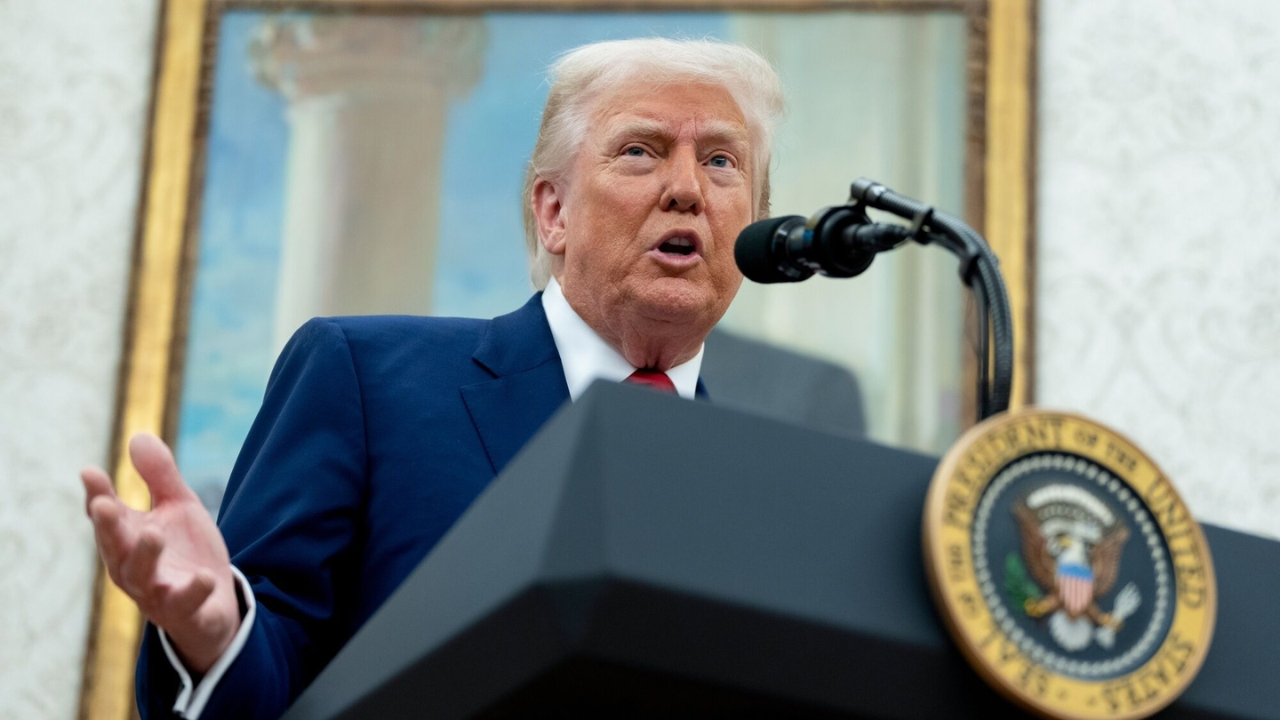Former President Donald Trump has brought a new phrase into the political spotlight as he continues campaigning for the 2024 election. The term is “TACO Trade,” and while it may sound like a menu item, it’s a new slogan tied to his economic and trade policy agenda.
The acronym stands for “Tariffs At the Core Of Trade,” and it reflects Trump’s continued belief that tariffs should be central to the way the U.S. handles international trade.
Trump has long supported the use of tariffs to punish countries he believes are taking unfair advantage of the United States. Now, with TACO Trade, he’s packaging this idea into a simple, catchy phrase that he hopes will resonate with voters.
During an interview with Fox News’ Sean Hannity, Trump unveiled the acronym. He stressed that putting tariffs first in trade policy would help protect American workers and industries. Trump’s broader argument is that tariffs discourage outsourcing, encourage domestic production, and help reduce trade deficits.
But critics are skeptical. Many economists and trade experts argue that heavy tariffs can hurt American consumers by raising prices on imported goods. They also warn that other countries could retaliate, which might trigger trade wars and disrupt global supply chains.
Still, Trump isn’t backing down. He’s doubling down. On his social media platform, Truth Social, Trump promoted the TACO Trade plan and accused President Joe Biden of being weak on trade. He claimed that under Biden, America has lost manufacturing jobs and become more dependent on other countries, especially China.
Trump’s emphasis on tariffs isn’t new. During his time in office, he imposed tariffs on hundreds of billions of dollars worth of goods, targeting countries like China, Mexico, and members of the European Union.
He argued that these countries were unfairly flooding the U.S. market with cheap goods and hurting American businesses.
One of Trump’s key tariff moves was placing a 25% tariff on steel imports and a 10% tariff on aluminum. These actions were defended as necessary for national security, but they also sparked backlash from allies and trade partners. In response, many countries imposed their own tariffs on American products, from soybeans to motorcycles.
Despite the controversy, Trump’s supporters say tariffs work. They point to examples where foreign companies agreed to move production to the U.S. or negotiated more favorable trade terms after the tariffs were announced.
Now, Trump wants to make tariffs a central theme of his 2024 campaign. And that’s where TACO Trade comes in. The phrase simplifies a complex policy issue and gives it a brand—something Trump has always been skilled at.
Some political analysts say the TACO Trade slogan is also aimed at energizing his base. It taps into the “America First” message that powered his 2016 victory and kept his supporters loyal through years of controversy.
Tariffs, in this context, are seen as a tool to reclaim control over the American economy and reduce dependence on global powers like China.
Others believe it’s just another buzzword that might sound good on a rally stage but doesn’t hold up under economic scrutiny. They point to the fact that tariff wars often hurt the very people Trump claims to protect: American farmers, manufacturers, and consumers.
Trump’s campaign, however, argues that the mainstream media and liberal economists are out of touch with what average Americans want. They say working-class voters, especially in key swing states, are tired of seeing factories close and jobs go overseas. TACO Trade, in their view, is a promise to stop that trend.
As the 2024 election draws closer, the TACO Trade plan is likely to come up often in speeches, ads, and debates. Trump is expected to use the term to contrast his approach with that of President Biden, who has taken a more traditional, multilateral route to trade policy.
While Biden has also kept some Trump-era tariffs in place, he has focused more on building alliances and pursuing trade agreements rather than using tariffs as a go-to strategy.
Trump’s critics argue that catchy slogans like TACO Trade oversimplify complex global issues. But even they admit it’s effective branding. In a time when attention spans are short and soundbites go viral, turning economic policy into a digestible acronym could help Trump reach undecided voters.
For now, it’s unclear exactly how TACO Trade would play out in practice if Trump wins. Would he impose new tariffs across the board? Would trade deals be renegotiated from scratch? Would countries like China and Mexico respond with tariffs of their own? Those details haven’t been fully explained.
But if there’s one thing Trump has shown, it’s that he’s not afraid to shake things up—even if it sparks debate across the political spectrum.
As his campaign gains momentum, expect to hear more about TACO Trade, and whether putting “Tariffs At the Core Of Trade” is the economic reset America needs or just another risky gamble.






